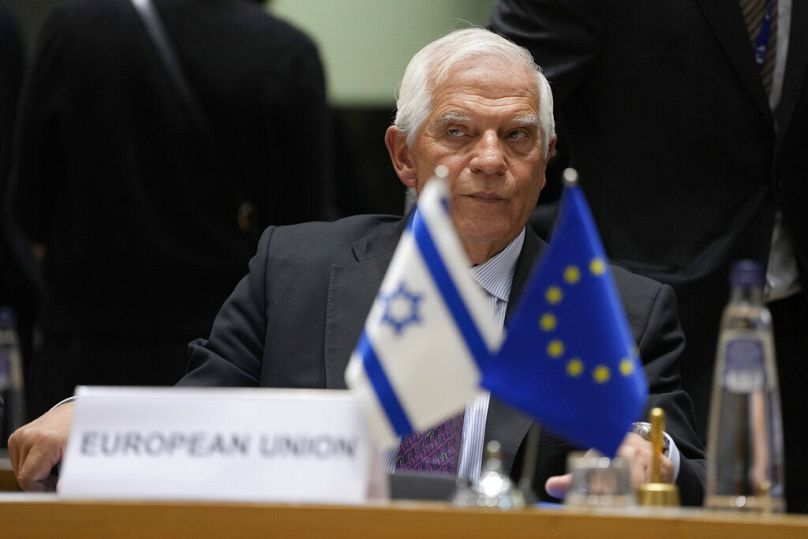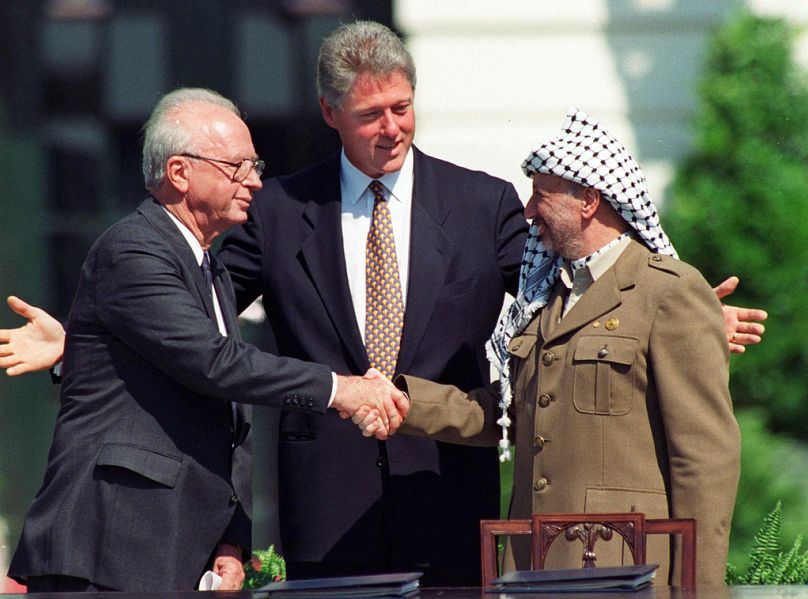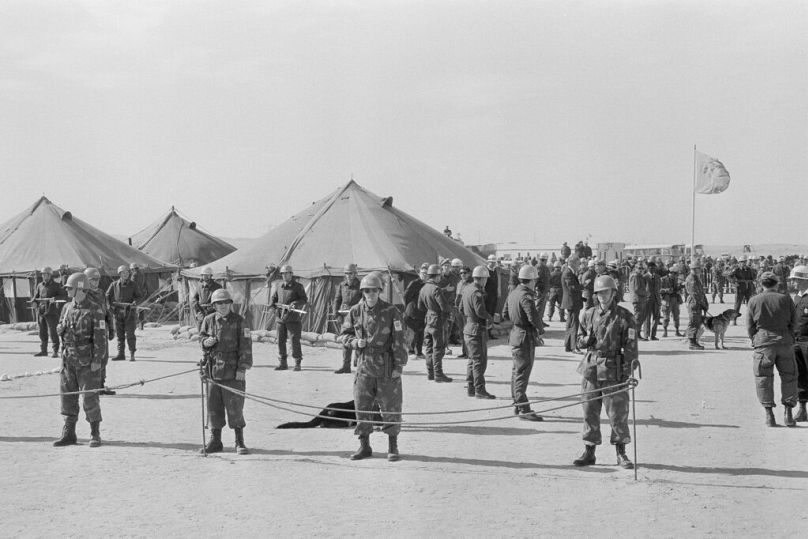Considering the increasing tensions and international competition in a very volatile region, if the EU seeks to become a strong actor in the MENA, it must uphold its values with tangible actions and not with contradictory statements, Assem Dandashly and Christos Kourtelis write.
In the last three decades, there has been a steady increase in the European Union’s efforts to shape the setting of its southern neighbourhood.
From the launch of the Euro-Mediterranean Partnership in 1995, and the European Neighbourhood Policy (ENP) in 2004, to the 2008 Union for the Mediterranean, the dominant belief among policymakers in Brussels was that providing both financial and technical support would enable the EU to use its normative power to persuade its neighbours to accept its values.
Progress in the area of free trade helped the EU to further integrate the South Mediterranean economies into the EU market and to advance some of its standards and rules.
Yet, the events of the Arab Spring in the early 2010s exposed the limits of the EU to promote its democratic norms and values in the region.
The revisions of the ENP and the emphasis on deep democracy and inclusive growth indicated that the EU had taken heed of its earlier foreign policy errors.
It also had the potential to be the benchmark that people in the Middle East and North Africa (MENA) looked to for positive change in the region.
However, the re-emergence of the EU’s stability-oriented security policy led to compromises in the promotion of democracy and human rights, best seen in the treatment of the migrants and asylum seekers from the MENA region in the last decade and the weak response of the European External Action Service against the democratic reversals in Tunisia and Egypt.
Demands to be seen are not enough
Yet, Russia's full-scale invasion of Ukraine last year has propelled the EU to display more assertiveness and cohesion in the neighbourhood.
The war has seemingly jumpstarted more advancement in the bloc's foreign and security policy in a matter of months than had occurred in the past several decades.
The latest conflict between Hamas and Israel has appeared as another opportunity for Brussels to demonstrate what EU foreign policy chief Josep Borrell has boldly declared “the awakening of geopolitical Europe”.
However, the emergence of an effective geopolitical Europe cannot take place with mere demands to be acknowledged as a real power or by jumping on the US bandwagon.
Without a common defence identity, the EU cannot act as a power in traditional terms and its response to the Hamas attack of 7 October has so far eroded its own values.
On top of that, it jeopardised diplomatic initiatives to expand its influence in the wider MENA region. As a result, the EU’s existing strategy (or the lack thereof) has had several consequences.
Mere words won't force a rethink
First, it undermined the potential of the EU to act as a linchpin of a mediation process for resolving the conflict.
Although the EU policymakers did well to denounce the attack of Hamas, European Commission President Ursula von der Leyen only issued a short statement during her visit to Israel, which backed "Israel's right to defend itself against the Hamas terrorists, in full respect of international humanitarian law.".
Such statements are clearly not enough to prevent or stop the deaths of innocent Israeli and Palestinian people, as more firm action is needed.
When Washington negotiated the Sinai Interim Agreement between Israel and Egypt in 1975, US President Gerald Ford refused to sign new arms deals with Israel until the latter made meaningful concessions.
That sent a clear signal to the then-Israeli government that it did not have a carte blanche from important international actors to conduct its Middle Eastern policy. Similarly, the EU (with the US) today could use its trade power to achieve geopolitical results and to force all stakeholders to reassess their policies.
A singular foreign policy is needed
Second, the EU has exhibited a fundamental deficit of both vertical and horizontal coherence, as in nearly every recent MENA crisis.
The issue at hand right now is that the lack of coordination does not allow the EU to forge collective involvement in international diplomacy.
If the EU wishes to strengthen its geopolitical influence and advance international efforts for long-term peace in the region, policy uniformity is crucial.
The recent history of Euro-Mediterranean relations offers important lessons for today.
After the Yum Kippur War, which was sparked by a surprise attack by a coalition of Arab states on the Day of Atonement on 6 October 1973, European politicians demonstrated their capacity to comprehend the security threats that the region's escalating violence posed for Europe.
Effective coordination between Paris, London and Bonn led to a distinct foreign policy from the US. This strategy expanded the EEC’s presence in the MENA through the Euro-Arab states dialogue, even if Europe’s diplomatic efforts to resolve the conflict diminished in the following years.
Upholding EU values with tangible actions
Third, the EU’s approach to the current crisis can seriously damage its image among the Arab Mediterranean civil societies.
Surveys demonstrated that citizens of Arab countries in the Mediterranean continued to show trust in Brussels, although the handling of the migration crisis, and the EU’s reactions to the military coup in Egypt and to the Libyan and Syrian crises have attracted more and harsher criticism in the last years.
The view of Western institutions being unable to offer solutions to this crisis will undermine the much-needed cooperation in the implementation of many EU development programmes with local actors, who will be more keen to seek support from other donors antagonistic to the EU values and geopolitical objectives.
Considering the increasing tensions and international competition in a very volatile region, if the EU seeks to become an effective actor group in the MENA, then it must do this by upholding its values with tangible actions and not with contradictory statements.
So far, pleas for self-containment and humanitarian support appear as the lowest common denominator and do not signal that the EU has the capacity or willingness to act as a real geopolitical power.
Assem Dandashly is Associate Professor in Political Science at the Department of Political Science at Maastricht University, and Christos Kourtelis is Assistant Professor in European Public Policy at the Department of International, European and Area Studies at Panteion University in Athens.
At Euronews, we believe all views matter. Contact us at view@euronews.com to send pitches or submissions and be part of the conversation.














